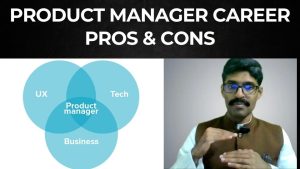The Insider Guide to Careers
Insider information, secrets and tips about getting hired and building careers. For employees and job candidates.
Let me begin by talking about two friends who have taken up new jobs in the last one year. One of my friends is a new hire in the consulting world who waits till the last minute to do his work. The issue with this employee’s approach is not that he doesn’t get work done. Consulting firms live and die by meeting deadlines and keeping customers updated is a part of customer satisfaction. Customer focus is why engagement managers ask for frequent work updates, often daily. The managers are trying to predict which work is trailing so that they can allocate additional resources to solving that bottleneck. There is also an element of unfairness – everybody else puts their heart and soul into work, clocking long hours. Why is this employee not working as hard as the other consulting folks? Is it laziness, lethargy, or indifference? You can see how innocuous work can be misinterpreted in the office. Secondly, lawyers and consultants are billed by the hour. Hence, customers do not want to pay for any hours the consultant doesn’t work. Either way, clients and colleagues are left only with not very positive impressions of my friend. This situation is sad, considering that he has never missed a deadline.
Another friend is so brilliant that he only wants to do meaningful projects, which will make his awesome resume even better. He strongly feels that regular, quotidian work is not for him. This employee makes the cardinal error that a company is not a place for self-fulfillment. The truth is that most companies run on the management principles designed a century ago under Frederick Taylor and Alfred Sloan. They are designed to create replaceable cogs out of employees. The fact remains that most employees in a company can be backfilled by another employee very quickly if they quit. Corporate roles are typically repetitive and boring. If an employee wants variety, they should be working in a startup and not in a cushy corporate position. One cannot just grab the exciting work of a startup and transplant the work to a corporate environment that pays more and is likely to last longer than a startup.
These two examples made me think about expectations from new hires. When new employees join a company, they are not just entering a new job but also conforming to the expectations of the new company. Everyone gets a fresh start in a new company. For experienced employees, this is an advantage. Nobody will care about your previous work experience, whether it be awful or exemplary. The disadvantage is that you have to prove yourself from scratch and that your life will again begin from zero.
The reassuring thing about work is that most companies value employees who are good human beings. The characteristics that workplaces around the world value are humility, cheerfulness, helpfulness, attention to detail, meticulousness, and flexibility.
In addition to the temperamental traits, here are some practical action tips anyone can practice. I have used most of these tips personally.
For more such articles, also follow my Substack and Careerbolt channels.



